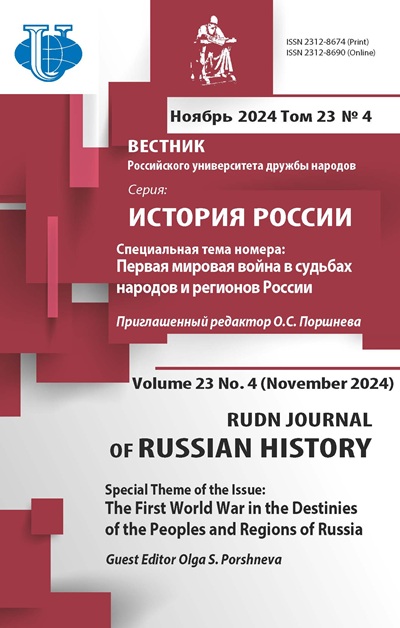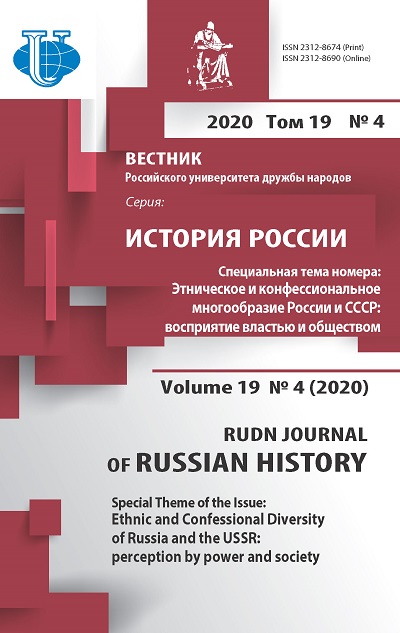Abstract
The complication of the national composition of the population due to new ethnic groups as well as incorporation of new territories into the Russian Empire were ones of the consequences of an active foreign policy in the XVIII - XIX century. The Poles, Jews, Gypsies, Finns, and many others needed to be incorporated into existing state, public, social institutions. Most of the activities carried out against, for example, the Jews or Gypsies, aimed at their violent adaptation. The tsarist administration made repeated attempts to persuade various groups of the gypsy population to a settled way of life under the aegis of combating vagrancy in the 1770s - 1820s. Their incorporation in the taxable urban and rural estates implied the imposition of state and district taxes and duties on them. This fully related to recruitment service in its natural or monetary form. But, the Gypsies, unlike Ashkenazi Jews, was not a united nation. This fact forced the government to take different approaches to their recruiting duties in different regions. In Crimea and Bessarabia, the Gypsies were an integral part of local communities. The authorities found it impossible to separate them, for example, from the Crimean Tatar Muslim societies. On this basis they were freed from recruitment same as the Tatars. But some militarized and military institutions (correctional troops of the engineering department, battalions of military cantonists) were used in a repressively educational spirit. If the first were supposed to stop the vagrancy of the Gypsies and promote their sedentary, the second were to contribute to the socialization of young Gypsies and make them ‘useful members of society’. This article for the first time in historiography raises the question of the attitude of the state towards the Gypsies of Russia from the point of view of military service. The article is written on the basis of published sources and unpublished documents from the central and regional archives, which are first introduced into scientific circulation.















